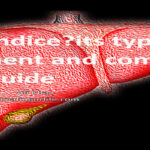Anger management refers to the process of recognizing and controlling intense feelings of anger.
It involves understanding the causes of anger, learning coping mechanisms to deal with it in a healthy way, and developing strategies for preventing and managing anger in the future.
Anger management techniques can include relaxation techniques, cognitive-behavioral therapy, communication skills training, and problem-solving strategies. The goal is to reduce the frequency and intensity of angry outbursts, improve relationships, and increase overall emotional well-being.
Major Harms of Anger
Anger can have negative effects on both physical and mental health:
Physical Health: Anger can lead to physical symptoms such as increased heart rate, high blood pressure, and headaches. Chronic anger can also weaken the immune system and increase the risk of heart disease.
Mental Health: Anger can contribute to depression, anxiety, and stress. It can also impact sleep quality and lead to feelings of guilt, shame, and low self-esteem.
Relationships: Angry outbursts can strain relationships and lead to isolation, conflict, and reduced social support.

source: pexels
Work Performance: Anger can impact work performance, leading to decreased productivity and increased absenteeism.
Legal Consequences: Extreme forms of anger can lead to criminal behavior and legal consequences, such as domestic violence or assault charges.
Substance Abuse: Anger can contribute to substance abuse, as individuals may use drugs or alcohol to cope with feelings of anger.
Therefore, it is important to practice healthy anger management strategies to reduce the negative effects of anger and improve overall well-being.
6 Ways to Manage Anger (in Detail)
Deep Breathing
Taking slow, deep breaths can help calm down and reduce feelings of anger. This technique allows you to focus on the present moment and can slow down the physical response to anger.
To use this method, follow a deep breathing process and focus on the inhalation and exhalation without interrupting your thoughts.
Mindfulness
Mindfulness practices such as meditation or yoga can help manage anger by improving emotional regulation and reducing stress.
Regulating your emotions is important in anger management because anger itself is linked to emotions rather than logic. And remember that anger is followed by regret, most of the times.
Exercise
Physical activity such as running, swimming or hitting a punching bag can help release pent-up frustration and reduce feelings of anger.

Exercise, outdoor games and other physical activities use up the extra energy in a useful way. This helps to washout frustrations and anger.
Time-Out
Taking a break from the situation that is causing anger can help calm down and gather your thoughts. This can involve stepping away from the situation or engaging in a relaxing activity.
Being in situations where repetitive anger is initiated promotes long term anger outbursts.
This causes a habitual anger even in minute problem.
So take a break. Reflect on the scenario and gather your up-planning.
Cognitive-Behavioral Therapy
This type of therapy helps identify and challenge negative thought patterns that contribute to anger. It can help individuals develop coping mechanisms to manage anger in a healthy way.
Communication Skills
Improving communication skills can help reduce conflicts that lead to anger. This can involve learning active listening, assertiveness and conflict resolution techniques.
Conclusion
Avoid non-resonant communication, harmful discussions and toxic arguments. It’s important to find what works best for you and consistently practice healthy anger management techniques to reduce the negative effects of anger and improve overall well-being.
Also Read:
10 Amazing Mental and Physical Benefits of Exercise
Dr. Ali Khan, a medical professional and writer, brings a unique combination of skills and expertise. With a great knowledge in the medical industry and a passion for writing, Ali Khan offers a fresh perspective on Self Help topics. Whether providing expert medical care or sharing insights through writing, Ali Khan is dedicated to making a positive impact in the lives of others. His work reflects commitment to excellence and a deep understanding of the healthcare industry and self help content writing.
Email: dralikhan5035031@gmail.com









